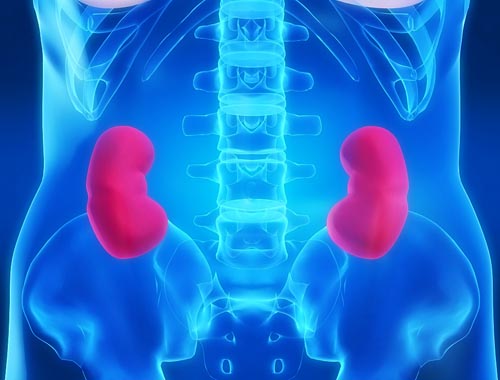Renal ischemia
Renal ischemia is the deficiency of blood in one or both kidneys, or nephrons, usually due to functional constriction or actual obstruction of a blood vessels. When the kidneys do not have an adequate amount of blood, renal ischemia can result. This medical condition, sometimes termed nephric ischemia, can be due to constricted arteries, or blockage of these vessels. While this type of ischemia can be reversible, it may also lead to potentially fatal consequences. Acute kidney injury is one consequence of this problem, and this deprivation of fresh blood is one of the largest causes of complete renal failure. Disease states, injury, and even certain types of surgery can be triggers for renal ischemia. Often, this condition begins with a temporary constriction of blood vessels to the kidney, or a minor blockage. Immune responses in the renal area can then lead to inflammation and further disruptions to blood flow as the tissue attempts to deal with these issues. Over time, this may lead to long-lasting vasoconstriction, or a contracting of the blood vessels, which inhibits blood flow. Lower amounts of blood are able to enter the glomerules, special tissue that helps to filter toxins, as a result of this condition, which can further increase damage and contribute to acute kidney failure.
